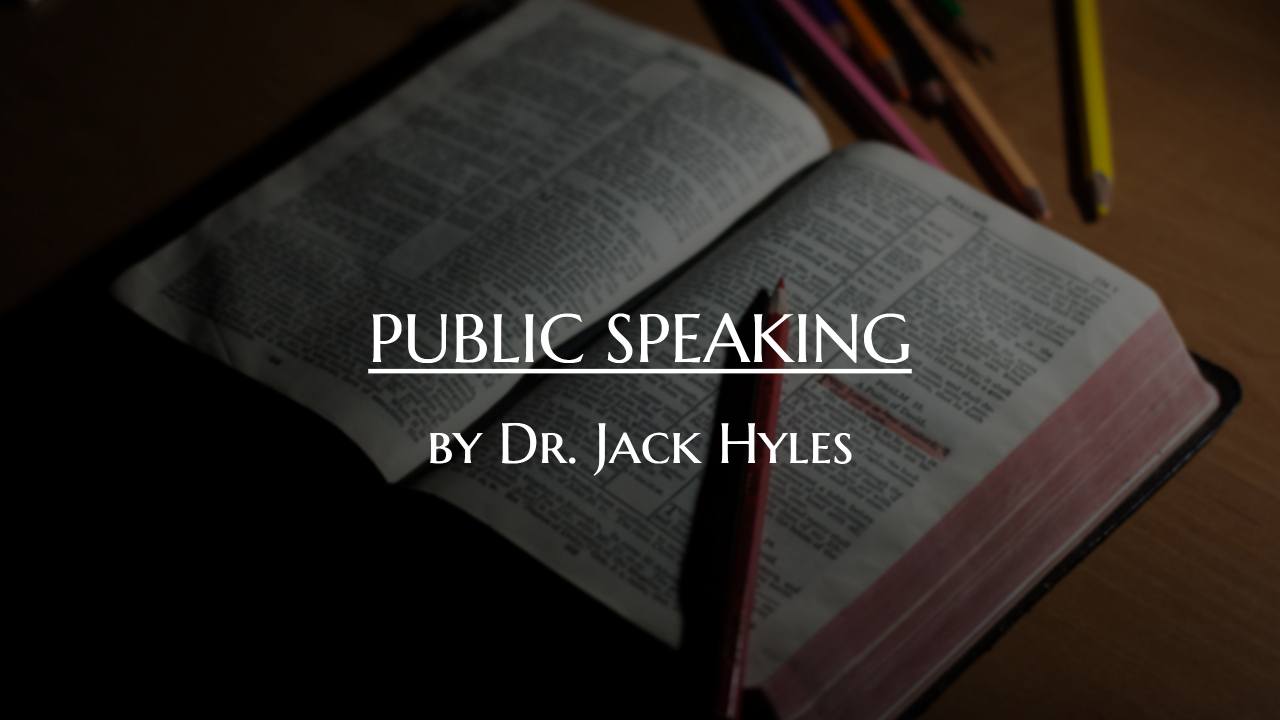Funerals
Funerals are not a scriptural duty of a pastor, but a pastor is commanded to comfort people.
Most people at First Baptist Church do not actually like invitation time; it is a dead time for most of them; the same goes for baptism. The soul-winning program is not the most popular.
You have to do the things they want you to do well so that they will let you do the things they don’t like.
I believe that my weddings and funerals helped to save my neck when I first became the pastor of this church.
The most beautiful wedding and the most comforting funeral town ought to be the one at the fundamental church.
Just after the death
1. Remember the times you spent together; (This will warm your heart – try to think well of him.)
2. Get a picture of the deceased and look at it for a while; (You have to feel in your heart that you miss him by giving him special thought.)
3. Pull out their file and read some letters they have written you. (I owe it to them [the family] to love the guy.
4. If possible, try to hear his voice on tape.
5. Drive by the house where he lived, late at night. (There is not such thing as a knack – just hard work.)
6. Drive to a place where you shared something with him. (Anything that is worthwhile is time consuming.)
7. Think how you would feel if you lost the save loved one.
8. Remember when you were there, if you have been through it. (Folks need somebody to empathize, and care with them.) Sit where they sit, feel what they feel; work at it.
9. Do research.
- – Talk with his family. (Don’t let them know you are researching.)
- – Talk to his friends.
- – Talk to his neighbors.
- – Talk to his fellow- workers.
- – Talk to his fellow students.
- – Talk to his past friends, neighbors, workers, students.
- – Try to find the good that he did.
- – Find his good qualities.
- – Find out his tastes.
- – Find out what he loved.
- – Find out some of his sayings.
- – Find the details of his salvation.
10. Remember the service is mainly for the bereaved. The purpose of the service is to comfort the family and to lend dignity to the departed.
The main reason I believe in funeral services is because that is where people realize it is real.
11. The sermon should be representative of what the congregation would say, so find out what they would say, and say it.
12. The sermon should never be negative. (A funeral sermon is no time to preach on Hell.)
13. A funeral sermon should not be loud.
14. A minimum of hours should be spent on research and preparation for every funeral sermon.
15. Be only mildly evangelistic. (You’ll win more souls later this way.)
16. Be precise and brief. (12-20 minutes long.)
17. Stand erect and confident; be precise and use proper grammar.
18. Walk confidently to the pulpit.
19. Prepare to be inspired from within. (There is nothing deader than a funeral crowd. Do not depend on audience inspiration.
20. Use few, if any, gestures.
21. Always make some direct references to the family. (Direct address and indirect – talk to them and about them.)
22. Do not be repetitious.
23. Tape the service and give the family a copy.
Funeral Texts, and some outlines.
1. Gen. 50:26 – Coffin means “Hope chest.” Good funeral sermon for a good Christian.
2. Gen 49:33 – Good funeral sermon for a member of a close family.
3. 2 Sam. 1:23 – When 2 people die together.
4. John 14:1-3 – For an unsaved person. (God’s cure for heart trouble.)
5. Psalm 91:1 – For an unsaved person.
6. Phil. 1:21-23 – For the saved. (List all that he has gained.)
7. 2 Sam. 12:23 – For a child.
8. Job 13:15 – For sudden tragedy.
9. 1 Thess. 4:13 – For folks who take it especially hard.
10. Rom. 8:28 – When it is particularly hard to accept.
11. 2 Cor. 5:8 – One who wanted to die.
12. Suicide – say something positive about them.
I don’t believe in taking advantage of a captive audience. (With ref. To preaching on Hell at a funeral.)
To break down and cry would not be good.
Speak very briefly at the grave site, then pray.
Humor is out of order unless it is in very good taste.
Do not let a family choose the text; you can use it in the message someplace.
In the funeral of an obscure person (ex. A mission man) mention his importance to the Lord and all that God did for him; build his importance this way; not because of what he did, but because of who he was.



